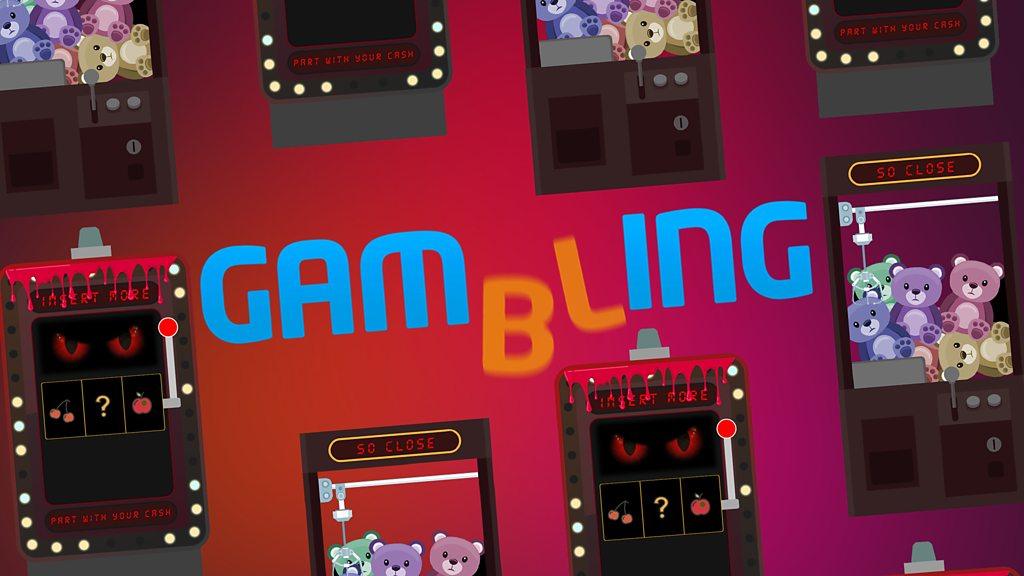Gambling sponsorship in football: Do you think it should be banned?
- Published
- comments
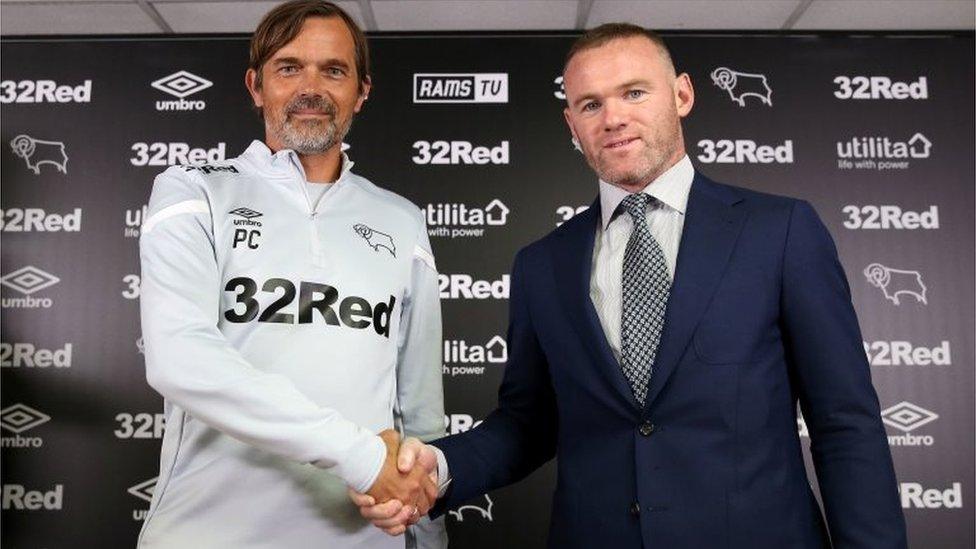
Rooney will start his role at his new club Derby County in January 2020
When you watch football on TV, how much attention do you pay to the sponsor's name on the players' shirts?
In 2018, one in six football teams in the UK got money from sponsorship by gambling companies, and this week, during Wayne Rooney's move to Derby County, a betting company was at the centre of the deal.
Gambling is when you risk money, or something of value, in a game or a bet in the hope of winning money or a prize.
Derby County said that "on the back of" the former England captain joining them, they secured "a record-breaking sponsorship" deal with an online casino called 32Red.
Rooney will wear the number 32 on the back of his shirt, when he plays for Derby, although it hasn't been confirmed this is a direct result of the deal with 32Red.
When asked about it, Derby County owner Mel Morris said: "We looked at the commercial opportunities this could create for us, and we realised this could be very smart business.
Rooney said the number he wears is "not a big deal" when asked about the sponsorship link at a news conference on Tuesday.
It's understood that the Football Association (FA), who have rules about what clubs are and aren't allowed to do when it comes to displaying sponsorship on kits, is aware of the situation.
But because Rooney won't actually play for Derby County until January 2020, the situation doesn't currently come under the FA's rules and regulations,
The news about Rooney and the new sponsorship deal has triggered a debate about whether gambling and football are becoming too closely connected.
Should gambling companies sponsor football teams?
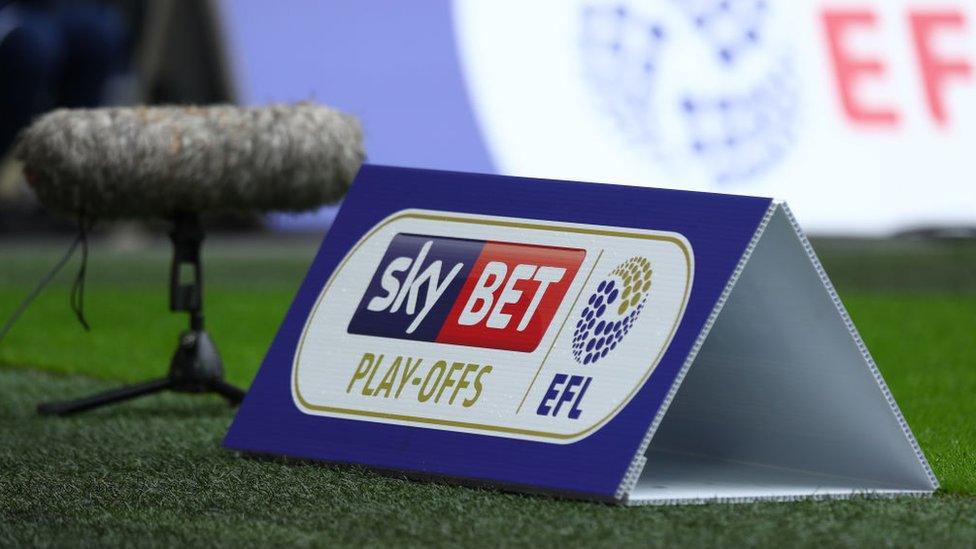
Adverts for betting companies like this are a common sight in football stadiums
A study by the Gambling Commission in November 2018 revealed that children as young as 11 have problems with gambling, while almost half a million kids have admitted to betting regularly.
According to the study, two thirds of children had seen gambling adverts on TV.
Gambling is when you risk money (or something of value) in a game or a bet in the hope of winning money or a prize.
There are lots of different types of gambling. For example, arcade games, sports bets, scratch cards, lotteries, roulette machines and some free-to-play games online are all forms of gambling.
For most gambling activities, the legal age is 18, so if you engage in these activities and you are under the age of 18, this is breaking the law.
During the men's World Cup last summer, the amount betting adverts shown during the tournament amounted to almost and hour and a half on screen time.
At the time Labour's deputy leader, Tom Watson MP, voiced his concerns, saying: "One of the only downsides to this brilliant World Cup has been the bombardment of gambling advertising on TV and social media that thousands of children will have been exposed to."
Since then the rules in the UK have changed, with betting companies no longer running adverts on sport shown on TV before 9pm. The betting companies agreed to this because of growing pressure to protect children from exposure to gambling.
But it's not just adverts during the game that children see.
Gambling companies also advertise on players' shirts and in stadiums, which means gambling adverts and logos will often be on screen during live sport.
And, even though the Football Association don't allow gambling logos on replica kits for under 18s, many young people wear adult size kits - which do show the sponsor's logo.
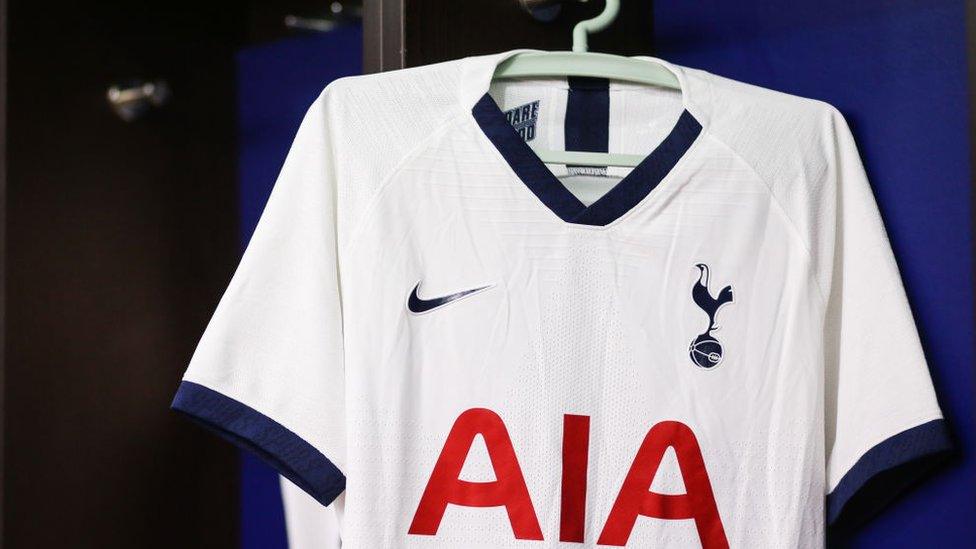
Clubs including Manchester United, Manchester City, and Tottenham Hotspur are among clubs who don't have gambling logos on their kit
What do other people think?
Football finance expert Dr Dan Plumley told BBC Sport that football's reliance on betting companies as sponsors is "one of the big issues" faced by the sport.
He said football clubs will argue that they need money from sponsorship of some kind, and so will ask 'why shouldn't they accept sponsorship from a betting company?'.
In the case of Wayne Rooney for example, it's been reported that the England and Manchester United's all-time record goalscorer will earn between £80,000 and £100,000 a week, and the sponsorship deal was key in him bringing back to English football.
Gambling Watch UK's Professor Jim Orford has said the number of football clubs with betting sponsors remains "worrying".
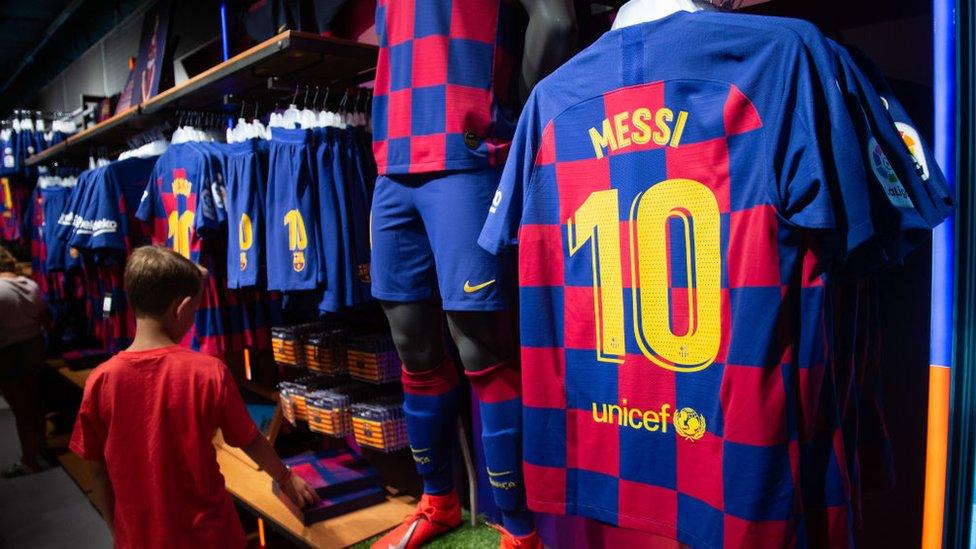
There are stricter rules for youth team players' shirts - they can't show gambling or alcohol company sponsors because players are under the age of 18
Last year he told the BBC: "There is evidence gambling is becoming ever more normalised, particularly among young people, so, increasingly, betting is seen as part and parcel of following and supporting one's favourite sport or team."
Back in September former Arsenal and England captain Tony Adams said he thought gambling companies sponsoring football teams should stop, telling the BBC "I think it's time. Like the alcohol sponsorship of the past."
Could gambling companies be banned from sponsoring football?
Right now the only items specifically forbidden from being advertised on kits by the Football Association are tobacco products.
Other than that any sponsorship is fine, so long as it doesn't display a "distasteful, threatening, abusive, indecent, insulting, discriminatory or otherwise ethically or morally offensive message, or any political message".
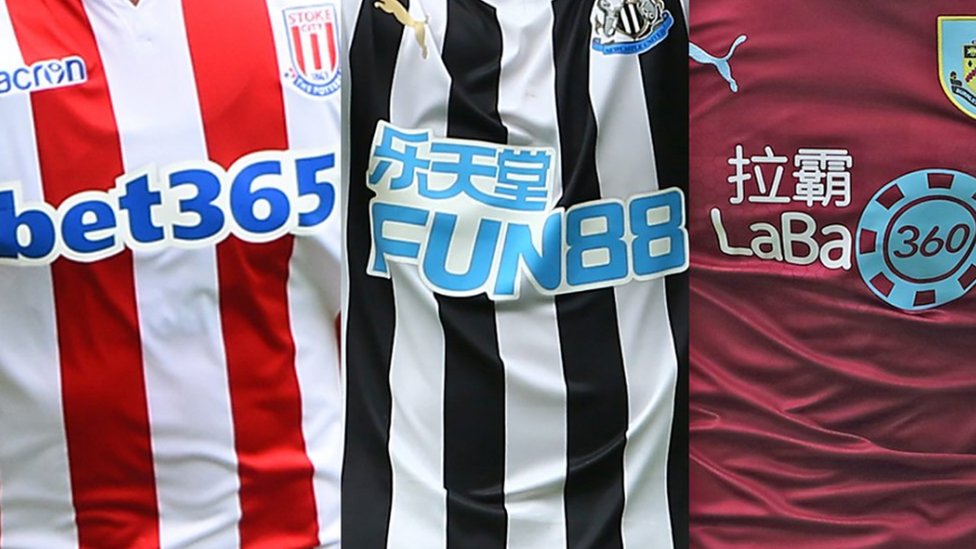
In 2018 nine out of the top 20 football teams in the UK were sponsored by gambling companies.
Aside from alcohol and gambling, the other main sponsors of football clubs are finance companies and electronic and technology.
Gambling sponsorship isn't just an issue for English football
In Italy, the country's deputy prime minister Luigi Di Maio, last year announced a ban on gambling adverts, which will mean clubs are barred from having gambling sponsors.
But this attracted criticism from the European Gaming and Betting Association, who argued the move wouldn't stop people gambling, but would instead lead to people turning to unregulated or even illegal companies.
Italian soccer league Serie A also complained that banning advertising of all forms of gambling, could put Italian teams at a disadvantage against other European countries because they wouldn't have as much money to offer players or managers.
What do you think about this? Let us know in the comments below.
If you are at all worried about gambling there are lots of places that you can go for support. You can speak to an adult that you trust like a relative or a teacher, or you can contact GamCare for free on 0808 8020 133, 8am to midnight, seven days a week.
- Published6 August 2019
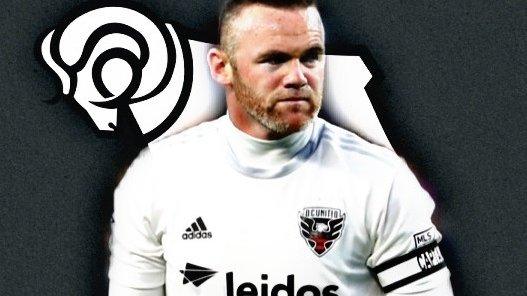
- Published17 July 2018
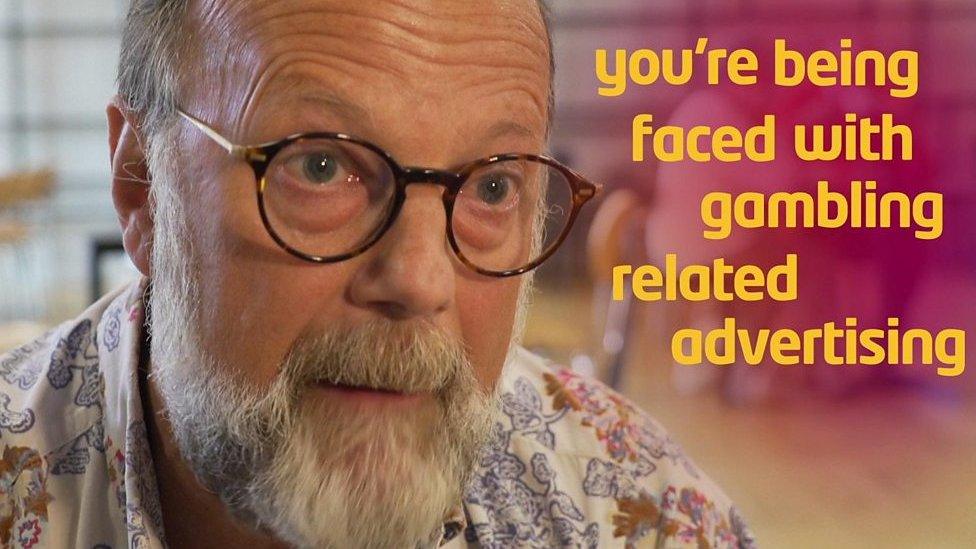
- Published17 July 2018
